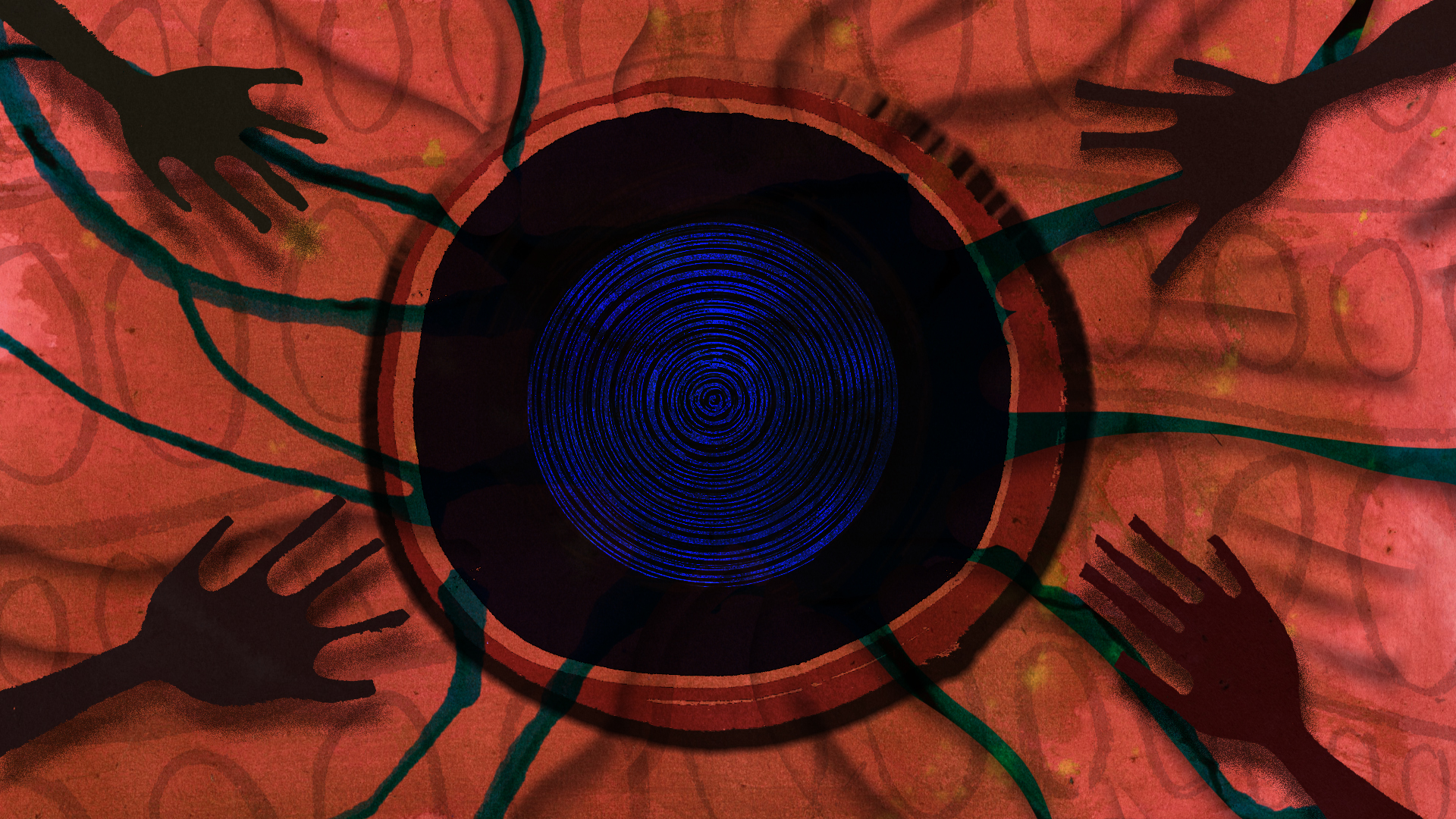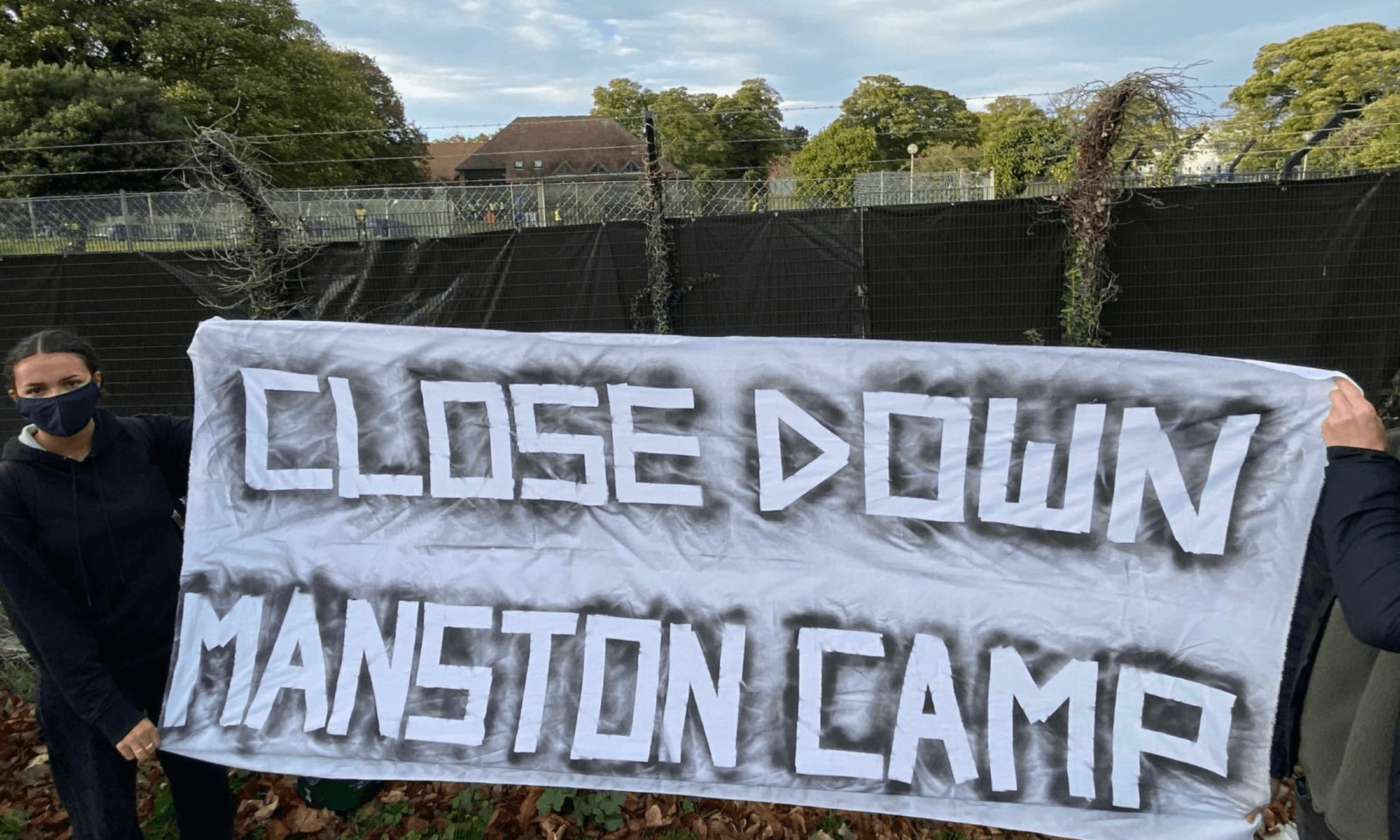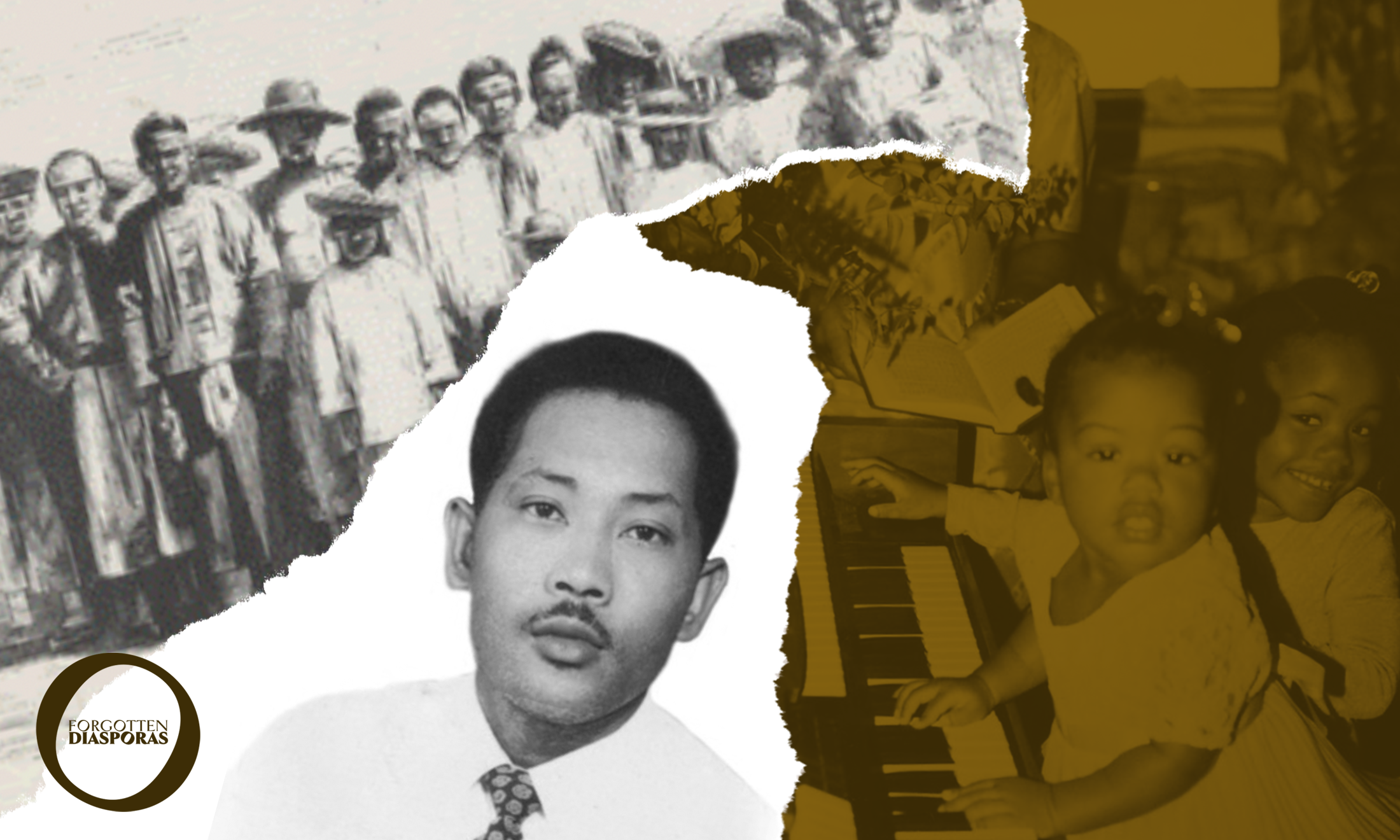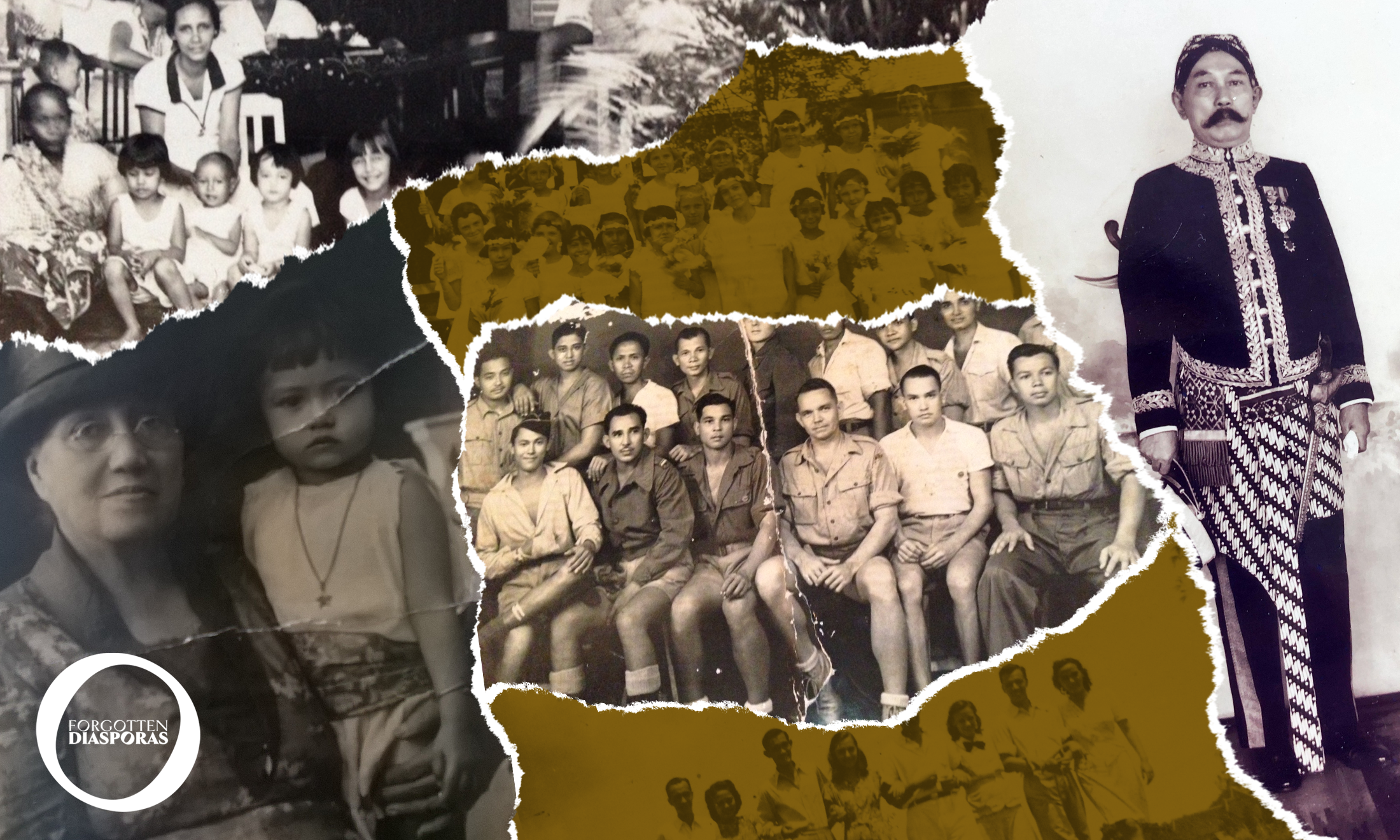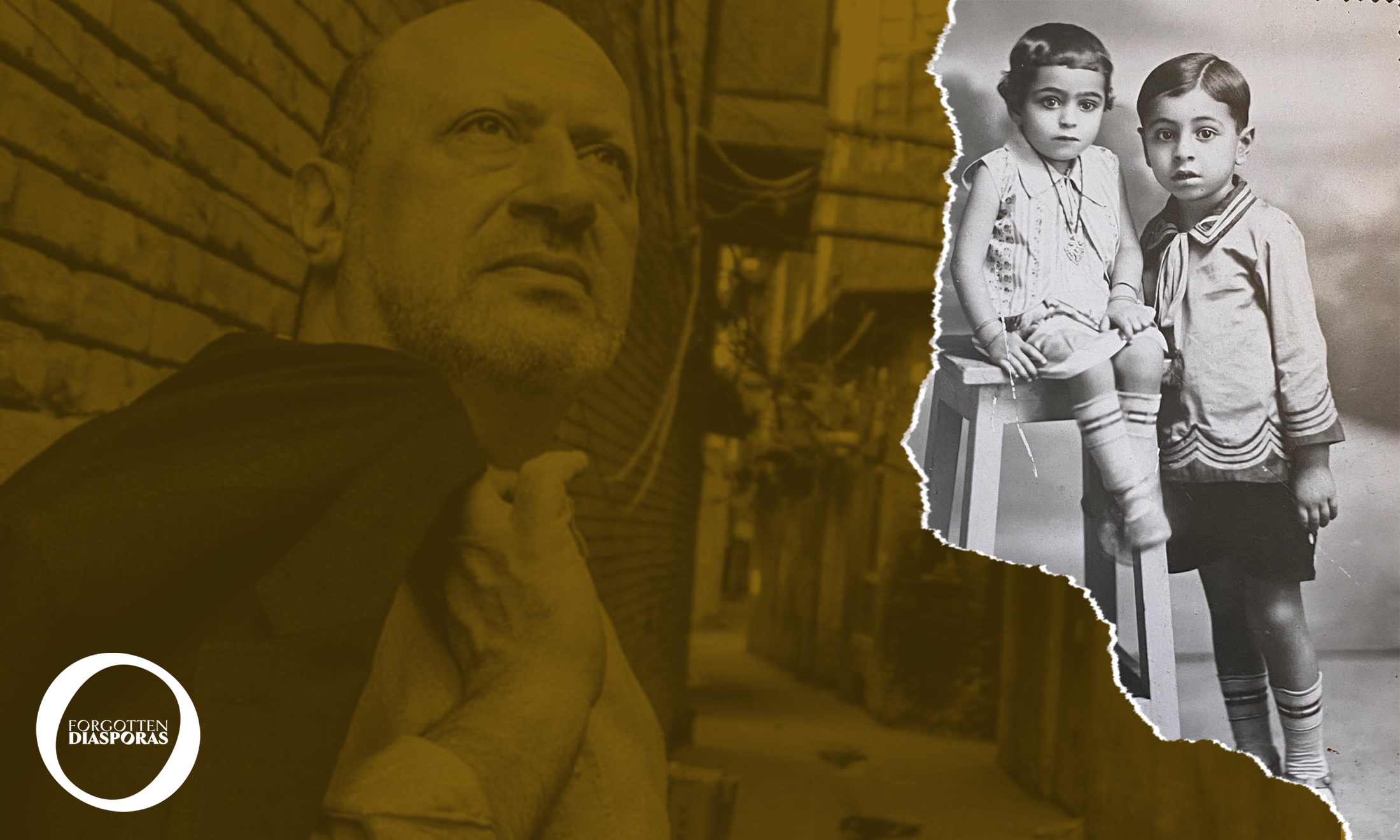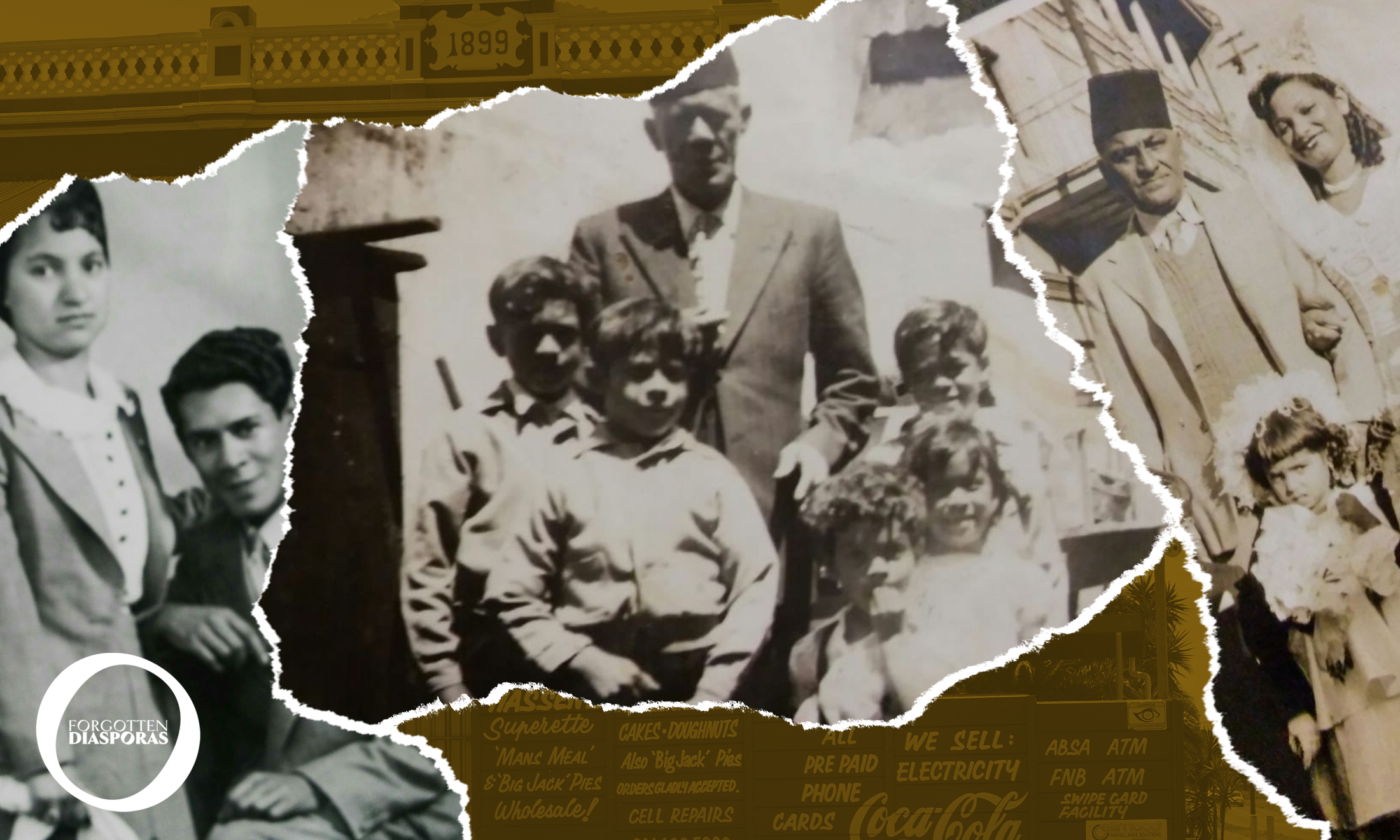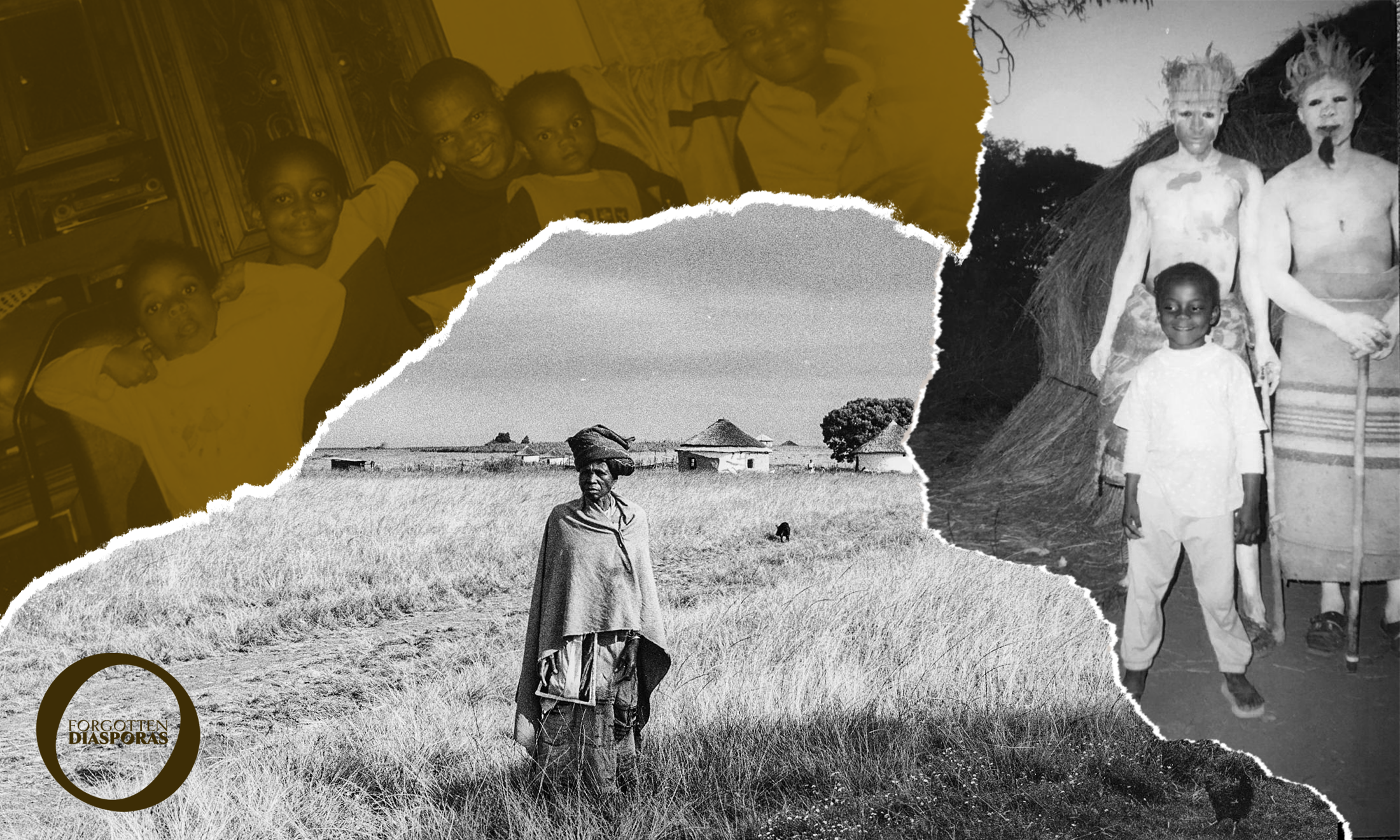
via author and Flickr
Xhosa People of Zimbabwe: indigenous South Africans displaced by colonialism
When one writer stumbled upon a Twitter thread about Mfengu Xhosa, the Xhosa people of Zimbabwe, she finally discovered her heritage.
Nomqhele Beauty Dhlamini and Editors
03 Sep 2021
Welcome back to ‘Forgotten Diasporas’, gal-dem’s week-long series exploring histories of movement, survival and diasporic identity.
During the hot spell of June 2020, I was nearing the completion of my Master’s degree in London. Although lockdown restrictions were starting to lift, people were tentatively leaving the safety of their homes to enjoy the sun. It just so happened that on one of these days, I opened my phone in the park and stumbled upon a Twitter thread that changed my entire life. The social media post, compiled by a user called @tlsibanda, was on the Xhosa People of Zimbabwe.
I was never quite sure about the historical origins of my family as twice displaced migrants, and for a long time, I struggled to assemble the story of my heritage as umFengu (a displaced Xhosa person). However, I was shocked to discover that the information I had long searched for was simply explained and consolidated by a random person on the internet. And yet here I was, finally discovering the missing pieces of my identity.
Over the years, I had spoken to older family members about our background. Together with this thread, the ongoing conversations with my dad, photographs, and WhatsApp voice notes from my surviving paternal grandmother, a clearer narrative emerged. A validation of my mixed Xhosa identity did exist.
“I was shocked to discover that the information I had long searched for was simply explained and consolidated by a random person on the internet”
There are about eight million amaXhosa (the term used to describe Xhosa people as a collective) in the world. amaXhosa are an indigenous community known as part of the Nguni collective native to South Africa, whose origins are rooted within the Eastern Cape. amaXhosa emphasise traditional ethno-religious practices, customs and oral folklore inherited from their forefathers. These practices are sacred to the Xhosa identity and much of the history I know from my family’s displacement.
A small Xhosa community, amaFengu (‘the wanderers’), exists in Zimbabwe, where over 200,000 reside. The Twitter thread documented the Mfengu Xhosa people’s migration to Zimbabwe during South Africa’s colonisation in the early 1900s and explained how Cecil Rhodes was instrumental in this inception of the repressive apartheid regime. The Mfengu have survived and thrived in the region since, celebrating 100 years in Zimbabwe in 2000. However, our presence in Zimbabwe is a longstanding marker of the internal displacement of the indigenous communities in Southern Africa, in a period known as Mfecane in the early 1800s.
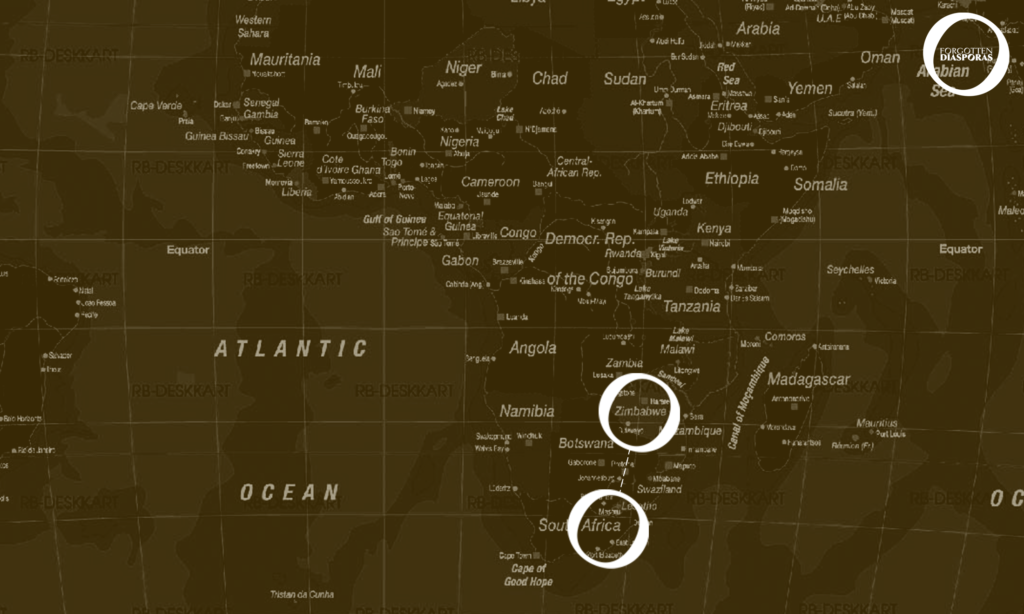
A lifetime of not knowing who I was
I grew up in Namibia – a small desert country in the south west of Africa – and lived in the hustle and bustle of Windhoek, the capital. The city is populated with African immigrant families like mine; each of them from pockets of the continent borne out of histories I later understood to be linked through colonialism. My sister and I were born in Zimbabwe, and moved to Namibia to join my father who had left in the late 1990s to make a better life for us. We were one of the lucky ones to escape Zimbabwe’s brewing economic crisis.
Looking back to my time in Namibia, I remember being around locals, learning to speak their lexicon, immersing myself in their cultures all the while not knowing my own. But as I became older, I’d often hear several of my family friends refer to us as South Africans, which became a source of an identity crisis for me. It seemed that the only truth I possessed was my surname, Dhlamini, which means linked to the royal house of the eSwatini. It’s safe to say that for a big chunk of my life, I didn’t know who I was.
“When my dad told me his personal experiences of apartheid and the fragmentation of my family, I could see and feel the anger and pain he held from this history”
During my teenage years, I was always asking my father about where in South Africa we were from. “We are from Mafikeng!” he would exclaim, describing the capital city of the North-West Province of South Africa. Yet this never made sense to me as I was aware that most of amaXhosa had ties to the Eastern Cape of South Africa. Then I’d ask why we speak isiXhosa (the language of the Xhosa) when I have never heard it being spoken in Zimbabwe. He laughed, joking that it was “too advanced for the locals”.
By the time I was 17, I started reading more into the role of colonialism in Southern Africa, and the ruptures it had caused for ethnic groups and cultures along the South African and Zimbabwe border. When my dad told me his personal experiences of apartheid and the fragmentation of my family, I could see and feel the anger and pain he held from this history. The more I heard, the more I started to embody these same feelings. I felt more disconnected, displaced and determined to understand and document this history for myself and other indigenous South African groups that have been scattered across the region because of colonialism.
Language and culture as a much-needed validation of identity
The Twitter thread not only brought a realisation of a vibrant community of my people, but the reassurance that we existed, sikhona (we are there). I learned about different clans, how the Xhosa community was established in Zimbabwe and the preservation of our language and culture during the years we’ve been there. But I had to dig deeper, and through my research I stumbled upon the work of Dr Kunju, who has written the first ever PhD thesis in Xhosa, titled IsiXhosa ulwimi lwabantu abangesosininzi eZimbabwe: Ukuphila nokulondolozwa kwaso (Xhosa as a Minority Language in Zimbabwe: Survival and Maintenance). His work explores the Xhosa group that settled in Zimbabwe, focusing on the preservation of their language and culture.
“The [Xhosa of Zimbabwe] spoke isiXhosa better than I did,” Dr Kunju laughs as he describes the moment he found out about Xhosa people when he moved to work in Zimbabwe in 2009. The professor presumed that the language was better preserved in South Africa, where he was born and where 7.8 million Xhosa people reside. When my dad briefly joins our Zoom call, Dr Kunju’s disbelief deepens as they converse effortlessly in isiXhosa. Between the laughs and introductions, my father explains that our family has kept the language because his grandfather never allowed any other language to be spoken in his home.
Dr Kunju tells me that the presence of amaXhosa in Zimbabwe is not well known in South Africa and that when he informs people of the discovery of our community, they often think that he’s joking. These reactions are not uncommon and are part of the reason why in 2014, the professor began conducting his research on the preservation of isiXhosa in Zimbabwe.
“I butcher pronunciations, mix the conjugation of my clicks and struggle in deep conversation. But, if you asked me to sing a song, I could sing it perfectly”
Finding out that the Xhosa of Zimbabwe were able to maintain their isiXhosa made me feel slightly ashamed, as it’s always been a running joke in my family that I’m a terrible isiXhosa speaker. I butcher pronunciations, mix the conjugation of my clicks and struggle in deep conversation. But, if you asked me to sing a song, I could sing it perfectly. For many of us amaFengu, songs solidify relationships with our culture and link us back to our South African roots. These songs carry meaning, from playful children’s songs to oral recordings of our history. My favourite is Kwakungekho njalo kwaZulu (‘It wasn’t like this when we were still in the Zululand’) – a song that was carried by Mfengu refugees from the Eastern Cape during their displacement into Zimbabwe.
Our traditional music, featuring drums, mouth harps, and stringed-instruments, and especially group singing accompanied by hand clapping, is not really recorded but played at umgidi – ceremonial events such as weddings. It is integral to preserving the language as it is spoken. Some of these folk songs have even been reworked as samples over the growing popularity of South African house or Amapiano genres. Despite isiXhosa being considered as an ‘endangered language’, its uniqueness, mainly the versatility of clicks and its assertive nature has made it popular. So popular that it was used as the main language used in Wakanda, in the film Black Panther – one of the biggest Black cultural moments of our time.
“It seems that no matter where we are, food has kept us linked to our culture and its comfort cannot be erased by colonialism”
As much of his academic focus was on language and music, Dr Kunju was also keen to provide the Xhosa people of Zimbabwe an opportunity to relay their own language, cultural and traditional survival stories in his thesis. He tells me of several examples, particularly of the difference in our ethno-religious practices such as Ulwaluko (initiation), a rite of passage of Xhosa boyhood (inkwenkwe) into manhood (ubudoda) through circumcision. In South Africa, it’s been reported that hundreds have died and thousands of initiates (abakhwetha) have been hospitalised with complications from the initiation process as they still use the same tools and medication post-circumcision for centuries. In Zimbabwe, the Xhosa are much more flexible as they continue to review the process and have introduced the use of modern medicine to allow for the safety of the initiation.
Moreover, despite the emphasis of these practices to keep the culture alive, the endangered Xhosa community’s survival was also dependent on their acceptance of Christianity when they first arrived in Zimbabwe, and thus the abandonment of their ethno-religious practices was not uncommon.
However some things have stayed the same, such as our traditional recipes. Common staples, including isitshwala, inyama yenkomo and imifuno (maize meal, beef and green vegetables), are still made and consumed in the same way, but due to the Mfengu community having their own land to grow it in Zimbabwe, the only difference is its freshness. It seems that no matter where we are, food has kept us linked to our culture and its comfort cannot be erased by colonialism.
Why did the Xhosa migrate to Zimbabwe?
Following Mfecane in the 1800s, several refugees who carried specific surnames like my great-great-great-great-grandfather Siskhulu Dhlamini, assimilated into Xhosa-speaking areas in the Eastern Cape Colony. Sensing these endless tensions among the different Xhosa groups after the displacement, he then moved his family to Mafikeng. This internal movement marked the inception of my family’s imminent displacement from South Africa.
In 1896, Cecil Rhodes approached Mfengu families to ‘persuade’ them to move to Southern Rhodesia – present-day Zimbabwe. With the lucrative promise of ‘reserves’ their own lands and titles, could our ancestors be blamed for jumping at such an opportunity? It was only until much later that Rhodes’ true intentions became clear; he was using the Mfengu to neutralise uprisings from the Ndebele ethnic group of Zimbabwe in Matabeleland, following its occupation by the British. Six years later, in 1902, the first few groups of amaFengu moved to Zimbabwe on trains via Mafikeng.
“amaFengu were settled in different areas including the Mbembesi area near Bulwayo,” says Dr Kunju, referring to a city in south west Zimbabwe. As documented in his thesis, once Xhosa people were in Zimbabwe, they acquired their own land which enabled them to stay there without interactions from the two major ethnic communities in Zimbabwe including the Ndebele and Shona people. They lived in silos where they could speak their language, practice their traditions and maintain the culture. Some of the Xhosa communities in outskirt areas including my family, survived by integrating with the Ndebele and Shona people along political lines, and in time instead of Xhosa people in Zimbabwe holding onto their identities, in order to survive they adopted the ethnic identities of the Ndebele/Shona people in Zimbabwe for an easier life.
“In 1896, Cecil Rhodes approached Mfengu families to ‘persuade’ them to move to Southern Rhodesia – present-day Zimbabwe”
A gap of knowledge exists from then to 1939 which means frustratingly, the rest of my family’s story relies on anecdotal accounts. In 1939, four of my great-grandfathers were forcibly displaced again from the Transkei Bantustans – segregated land in the Eastern Cape of South Africa established by British colonialists. This was during apartheid. They were forced in trucks, destined to different countries including Malawi, Lesotho, Botswana and Zimbabwe. Ukoko (my direct great-grandfather) Mfengu Impambo, was brought to Zimbabwe and he bought a farm in Mashonaland. But our history there was even shorter.
My family lived as a minority during Zimbabwean’s War of Liberation (1964-1979), a time that coincided with the mass genocide of the Ndebele people, known as Gukurahundi. After one of my great-aunts was shot under false accusations of poisoning soldiers, my family knew it was no longer safe to stay there. They sold their farms and moved to the midlands which was welcoming to different ethnic communities. Ukoko Impambo, who raised my father, was the last remaining connection to this displacement. He passed away in 1998. No one truly knows how old he was before he died, so key historical moments such as World War II were used to guess that he was in his early hundreds around the time of his death. He left his legacy, including his land, assets and home to my father but, fearing retaliation from the rest of my family, chose to relinquish power over my great-grandfather’s possessions and in the process, chose to leave Zimbabwe for Namibia and start a new migration trajectory.
Where does the Xhosa diaspora live today?
The remnants of this migratory history can still be felt today. Many of amaXhosa continue to relocate to neighbouring Southern African countries like Malawi, Botswana and Zambia, where there are established diaspora groups. New diasporas are also being made in other Southern African countries such as Namibia, where I grew up. Some amaXhosa have also been uprooted to European countries such as the UK where cultural practices, like traditional songs and coming-of-age ceremonies remain rooted in our culture.
In 2011, Xhosa King, Mpendulo Zwelonke Sigcawu, started his means of unifying the Xhosa people across the world after visiting the Mfengu community in Zimbabwe. He had a vision of establishing a nation where Xhosa people were able to feel and express their true ‘Xhosaness’. From art and literature, to cultural celebration and schools to sustain our history. Unfortunately he died in 2019 before this could become a reality.
Whenever I choose to return home to South Africa, I still experience feelings of disconnect as I find myself to be considered as an outsider, or makwerekwere (a derogatory term South Africans use for African migrants). The intergenerational consequences of colonialism displacement and apartheid have left scars we are still confronting. Yet I feel reassured of my identity by this newfound information and now can begin to uncover, learn, own, and celebrate our histories before they are lost for good.


